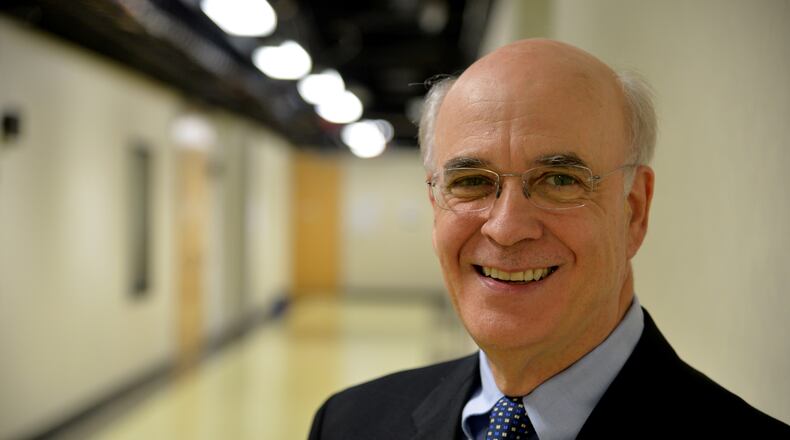Listen to Democratic U.S. Senate candidate Jim Barksdale on the stump and you'd be excused for thinking you were watching another ivory-haired politician who made his mark in 2016.
There's plenty of rhetoric sharply critical of past trade deals, Wall Street deregulation and the role of corporate money in politics, paired with some decidedly professorial attire. And ask Barksdale, a political neophyte, about what it's been like reaching out to the Democratic Party's traditionally younger, non-white base and he shoots back, "Bernie was an old white guy too, right?"
For his part, Barksdale said he came to many of the same political conclusions as Bernie Sanders on his own years ago. And there are a couple key differences between the two men: Barksdale made his fortune in finance and lacks Sanders' particular brand of disheveled allure. But he indicated Sanders tapped into something that animates many of the voters he's talked to in Georgia.
“I think (people) really respond to a sense that Washington is broken and that they know something is wrong, that their voice is not being heard and they know that the money in politics has robbed them of their voice," said Barksdale in an interview last week.
Barksdale is looking to reach out to the same group of voters that formed the core of Bernie Sanders' political movement earlier this year: young people dissatisfied with the status quo. And he's got plans to put in face time at local universities to help drum up support.
The Atlanta Journal-Constitution's most recent poll of Georgia voters suggests young people between 18-39 are less likely to support Barksdale's main opponent, Republican Johnny Isakson, than any other age group in the state. (Barksdale won the under-40 crowd by 5 percentage points in our August survey but lost middle-aged people by a similar margin. Isakson carried the elderly vote by 24 percentage points.)
Even more tempting for the newcomer is being able to tap into the 16 percentage point margin by which young Georgians said they'd vote for Hillary Clinton compared to Donald Trump.
At the same time, younger people tend to vote with less frequency than older generations, and since Barksdale is still fairly unknown there's a risk that those who do will skip over the Senate race entirely at the ballot box.
Barksdale's most recent attempt to build up support among millennials came Friday at a roundtable at Georgia Tech. Surrounded by 17 student leaders from a handful of Atlanta-area universities, Barksdale was peppered with questions about student loans, raising the minimum wage and the treatment of DREAMers in Georgia. He largely stuck to script, and many of the students there later said they were impressed with the Democrat and the way he's reached out to millennials.
"He's coming to multiple campuses and not a lot of other candidates do that, which I think really helps when college students can talk to him. It really shows that he does care," said Hannah Perkins, president of Young Democrats at Georgia State University.
But some said Barksdale would need to work harder to win their vote.
"I feel like he didn’t have any specifications about what exactly he wanted to do and exactly what he wanted to change," said Alliyah Francis, a junior at Spelman College.
Insiders note: We caught up with all three of Georgia’s U.S. Senate candidates over the last week. Read our previous dispatches here and here.
About the Author
The Latest
Featured




